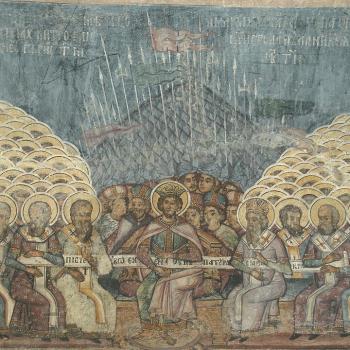Tara is former student of mine. She was an undergraduate history major who now works at a children's hospital in the Republic of Malawi, Africa. Her job consists of spending time with sick African children. She plays with them, builds relationships with them and their parents, listens to them, empathizes with their struggles, and then tells their stories to western Christians through a variety of social media outlets.
To borrow a phrase from James Davison Hunter's To Change the World, Tara is "faithfully present" in the lives of these Malawi children and their families. She is devoting her life to something greater than her own ambitions. She is an agent of change in the world.
And she landed this job because and not in spite of the fact that she was a history major in college.
Can the study of history change the world? Can historians, functioning in their role as historians, bring meaningful change to society? Or is the study of history merely about memorizing dates and facts—a kind of necessary burden one must endure to receive a high school or college diploma?
There are a variety of ways to think about how a historian might be an agent for change. For example, some might say that the historian has the responsibility find heroes in the past that inspire us to beneficent action in the present. A Christian historian might challenge us to draw inspiration from Billy Graham's commitment to evangelism, or Dietrich Boenhoffer's resistance to Hitler, or Martin Luther King's fight for civil rights, or Susan B. Anthony's battle for women's suffrage. In this model, the past serves the present only when we focus on its heroes.
Such a view of the past is evident in a recent study by the Southern Poverty Law Center (SPLC) concluding that school students are widely ignorant of the civil rights movement. Such a lack of knowledge is problematic, the study argues, because schools that do not adequately teach their students about this great reform movement in American history fail in their responsibility "to educate...citizens to be agents of change." The implication is that the study of the past is important because it produces activists.
The "past as inspiration" model has its merits. No one will disagree with the notion that the study of heroic individuals in the past can spur us on to great deeds in the present. The past should be inspirational. We should celebrate its heroes and then do our best, in the words of Jesus in Luke 10:37, to "go and do likewise."
But such an approach to the study of the past has its limits. All of us know that sometimes—perhaps more often than not—the past does not inspire. It is filled with brokenness and sin. It is filled with people who we may not want our kids know about. The study of the past always reminds us that we live in a fallen world.
When confronted with a past where heroes are hard to find, we often use the past as a morality tale. The inspirational figures inspire us, but the darker figures serve as examples of what we must avoid in the present and the future. How many times have you heard someone say that we must study the past so that "we do not make the same mistakes all over again?" In this model, which gets us closer to what students of the past actually do for society, the historian serves as a watchdog. He or she reminds us where we have been and alerts us to when we start to travel down paths that have been unproductive, morally suspect, or downright disastrous.
Indeed, historians can make a major contribution to the world by inspiring us and reminding us where we have been in the past and where we may not want to go in the future. But neither of these approaches to the study of history and its relationship to society are what primarily motivates someone like Tara in her work among the children of Africa.
Tara landed this job because she was able to articulate the ways in which her study of history has cultivated virtues in her life that are necessary to engage a world that is different from her own. Anyone who regularly reads this column knows that I am convinced that history, as a way of thinking about the world, teaches us virtues that are absolutely essential for life in a civil society. History is the antidote to the shouting matches we call the "culture wars." And, as I have argued before, it can also draw us closer to God.
As a student of history, Tara learned to listen to voices from the past, to walk in the shoes of others (even if they were dead), to step outside her own moment in time and her own self-interested approach to the world and try to understand as—difficult as that might be—the hopes, dreams, struggles, and mindsets of people who were different than her, or who were from another era, or who held beliefs that did not conform to her own world view. In this sense, the study of history humanized her. If history can help us have better marriages, it can also help us to be reconcilers and humble servants to those in need.





